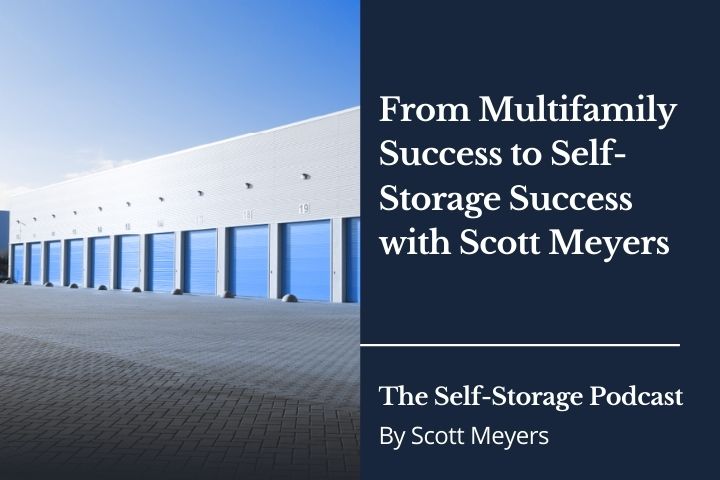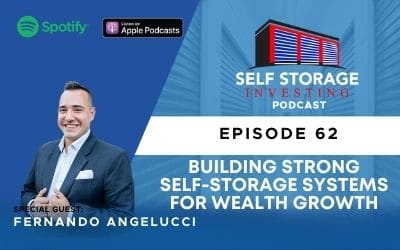For Russ Sorrells, business success comes down to four main areas of focus: being sure you have the right people and looking after them, having a clear purpose and mission, developing the right playbooks to execute the strategies, and performance.
People, Purpose, Playbooks, and Performance. The Four P’s that drive success.
WHAT TO LISTEN FOR
•Real tips for how to grow and scale your self-storage business
•How to go from chaos and complexity to simplicity and prioritization
•Avoiding the “Accidental Culture”
•Why “People” is the best investment you can make
ABOUT (RUSS SORRELLS)
Russ is the founder of Own Your Category and founder of Capital Equipment Sales Mastery. He has 27 years’ real world business experience and has owned and operated multiple seven figure businesses with more than 500 capital projects closed.
CONNECT WITH (RUSS)
•Website https://www.ownyourcategory.com/
CONNECT WITH US
•Website: https://www.selfstorageinvesting.com/
•Facebook: https://www.facebook.com/selfstorageinvesting
•Twitter: https://twitter.com/SelfStorageGuy
•LinkedIn: https://www.linkedin.com/in/scottameyers/
•Youtube: https://www.youtube.com/user/SelfStorageInvesting
•Instagram: https://www.instagram.com/self_storage_investing/
Subscribe! so you never miss a NEW episode! Leave us an honest rating and review on Apple Podcast.
Episode Transcript
Russ Sorrells (00:00):
It’s one extreme or the other. It seems to be to Scott. So some companies have no KPIs, they’re not really measuring anything. They’ve, they, their KPI is their banking account. Yeah. Do we have money in the bank? And that is, you just obviously cannot manage two performance if all you’re doing is identifying that you have money for next month in your checking account.
Self Storage (00:24):
This is a self-storage podcast where we share the knowledge and skills from the industry’s leading investors, developers, and operators to help you launch and grow your self-storage business. Your host, Scott Meyers, over the past 16 years has acquired, developed, converted and syndicated over 2 million square feet of self-storage nationwide with the help of his incredible team at Self-Storage and besting.com, who is how thousands of people achieve greatness in self storage.
Scott Meyers (00:57):
Hello everyone, and welcome back to the Self Storage Podcast. I am your host, Scott Meyers. And today’s guest is Mr. Russ Sorrells. Now Russ came to our mastermind and he is a master at building businesses and showing folks how to own their category and then giving them the guide as to how to do that. So those are the names, as I just mentioned in his bio of what his company is and what they do. And so I was so impressed by Russ. He just absolutely blew our entire mastermind away when he came out and spoke about those things, about how to grow and scale your business. And for you, Storage Nation, those folks that are out there that are growing and scaling yourself storage on business. We can only go so far without pulling in folks that have done this over and over and over again time and time again.
(01:43):
And it’s one thing to listen to myself and my guests in the self storage business that have done it, but it’s completely a different story. And to be able to look at other angles from folks that have done this for other companies, many other companies, and many other industries and asset classes, well that’s when you begin to again, fill in the gaps in any blind spots and just be able to draw on the experiences of others. So with that, I asked Russ, and it’s been a while before, since we were able to connect and get our schedules in sync, but I am so glad to have Russ on at the show. So Russ, welcome to the Self Storage Podcast.
Russ Sorrells (02:18):
Hey, appreciate that. Always great to connect with your community, Scott.
Scott Meyers (02:22):
Well, Russ, I’ve given Self Storage Nation a glimpse into your background and your bio, but if you would, why don’t you fill in the gaps and tell us a little bit about what you’re doing these days?
Russ Sorrells (02:32):
Yeah, I got the best job in the world. I get to work with leaders and leadership teams to help them grow and scale their businesses. And we do that by implementing an operating system called Pinnacle. And as I talked to your mastermind group, essentially what we want to do is we want to go from chaos and complexity to simplicity and prioritization. That’s oftentimes, as I was talking pre this conversation, that we end up with an accidental business. We end up with an accidental culture. We have not been intentional in getting really clear on what it is that we want and want to build. And as a result, we end up with accidental systems and clunky systems and a lot of chaos and complexity in our business. So what I do is I work with the leaders and their leadership teams to get really clear on creating a plan and a, I call it the seven three one ninety plan. And we identify our seven year pinnacle. We get really clear on our three year milestones. We get clear on our one-year key objectives, and then we break that down into 90 day sprints. So it has been, it’s a lot of fun to go in and see the light bulbs go off. And when we simplify the business and slow it down and really get clear on the priorities, it’s a game changer for the leadership teams and the leaders that I get to serve.
Scott Meyers (04:01):
Well, Russ, you and I know better than I do. It’s one thing to be a visionary in your organization, but then to be able to grow up leaders below you, the lieutenants, if you will, to catch that vision, but then ultimately to execute with a process that seems to be where, and I don’t know what the percentage is, maybe that’s 90%, 80%, that’s where businesses fail, or the businesses that are doing that part well are the ones that are succeeding. So yeah, kind of speak to that if you would, and the organizations and specifically how you help. I mean, at the end of the day, it’s all about execution. It
Russ Sorrells (04:35):
Really, it’s about, well, I think it’s executing on the right things for sure. So we’ve got to get really clear on what we’re going to execute on. And then as far as from a leadership perspective, the focus has always got to be on how will we replace ourselves? And you hit it, the nail on the head as it relates to, oftentimes as business owners, we get caught up in, if I hire this person, I’m going to have to pay them thousands of dollars in order to do this. Well, I can do that. So I’m essentially just taking money out of my pocket. And as a result of that thinking, we get locked into this, doing all the work or not outsourcing the aspects of the business that would be most important to outsource. So you are absolutely right. I encourage my leaders to get really clear on what they want to do and then identify the other activities that they can bring someone in, pay them more than you want to pay them.
(05:37):
So I’ve built, bought and sold six businesses in my career. And one of those businesses was a car wash and oil change facility. And we bought it. It was crushing, it was such an amazing business. When we bought it, the owner had, it was cash flowing $40,000 a month. It was a dream business. But the problem was, Scott, I didn’t want to wash cars. And the thought was, I mean, how hard can it be? It’s a car washing, oil change facility. Of course, it was a tunnel, one of those tunnel washes and people cleaned the cars on the inside afterwards, and turns out it, it’s really hard. It’s an extremely hard business, but I wanted to pay minimal for the person I hired. So hired someone, paid ’em, 40 grand, this job should have paid 120 grand with some equity, some skin, the game. But I went in 40 grand, okay, that person didn’t cut it.
(06:32):
And then I brought in another person, and Scott, we’re going to have to up this. So we paid him 48 grand and then had some bonuses in there. And eventually, you can imagine this, it stopped somewhere on the way down when it plummeted into the ground. So it was a big, big mistake. I mean, we paid 1.8 million for the business, and thank goodness there was real estate, it was on a good plot of land, otherwise we would’ve lost it all because of being cheap and not wanting to invest in people. So I learned it the hard way and it cost me and my partner a million bucks.
Scott Meyers (07:15):
I think. I can’t speak again for you or for everyone out there, but we become technicians in our business in many cases, and then decide to go out and do this on our own and then become the leaders. And what got you out of Egypt doesn’t necessarily, those aren’t the same skills that get you to the promised land. And we run our businesses like technicians instead of doing the things that we should be doing. And we see, and I fall prey to this, and we see this over and over again for the folks that we work with in self-storage. They buy a 2 million, a 5 million, a 10 million self storage facility, and then they hire their hairdresser because she has a nice smile and a way with people to run it and put her behind the desk and put her in charge of this 10 million asset and expect her to grow the N O I and produce returns for us.
(08:04):
And we see that happen. And I’m not that, that’s not a bad analogy. That is the truth. And that happens over and over again. We see how little can we get to put a warm body behind that counter to keep it running mean, come on, it’s a simple business and it’s already doing this. Why can’t somebody else just come in and run that? And that is absolutely the wrong way of going about this. And so I’m just assuming then out of that, every good entrepreneur, when we see an opportunity in the marketplace, we fill it because we need it in our own business first. And so it sounds like lessons learned in the first one and second time around you decided that, hey, you’re going to do things a little bit differently. And then that repeated, and then now you’re in the business of helping folks. So let’s go back to, I guess the aha moment when you recognize that we need to dismantle this and put it back together the right way, and building those building blocks for the business that you have right now. What did that look like during that phase?
Russ Sorrells (09:00):
Yeah, it looked like desperation because when you’re in, it’s very difficult to see any light at the end of the tunnel. And I had a business partner that was in this with me, and he was often saying, well, how hard can this be? And so my first job was to convince him that we needed to figure something out and either pay up or exit or identify what our strategy’s going to be, because we just kept money in at this point, instead of cash flowing $40,000, it was $10,000 upside down each month. So we had to continue to put money in. So certainly I created a whole list of things not to do. Again, number one on the list, Scott, was you cannot rationalize with irrational people. And that sounds obvious, but in that world. So my first business, well, my first business was a machine shop in my garage years ago.
(10:00):
And then I built a manufacturer’s rep business where I sold automation in my primary customer base were engineers. So I worked with professionals, I worked with presidents of companies and general managers of companies, and I worked with engineers to help them identify these multi-million dollar automation systems that they were going to buy and then eventually build product to primarily automotive. So they would ship these to automotive companies. So I was used to having a more professional interaction. And when going into that consumer space was an absolute punch in the face because consumers, as it turns out, aren’t real rational. The help that I had to bring on to be able to be in that role to work at a car wash, they were not very rational. And I really struggled to relate and connect when you haven’t lived paycheck to paycheck and you don’t know what that’s like.
(11:05):
And so I would sit down with my team members and I would say, let’s create a plan for your life. Oh, can you hear me okay? Okay. Yeah. So I said, let’s create a plan for your life. And so we would sit down and I would sat down with every single team member, and I helped them create a plan for their life. And I’d say, what do you want to do? Want to accomplish? Well, I want to get my GED. Awesome. We will help you pay for that. Here’s what I want you to do. I want you to go make a plan. What’s step one? I said, let’s just start right now. What’s step one? Well, step one is I need to get enrolled in this program. Okay, excellent. So that’s step one. What’s step two? Step two is that I’ve got to, I’ve got to pay the fees.
(11:50):
Okay, we’ll help you with that. What’s step three? So we worked to create a plan. Literally every time I would work with them to create a plan, they would quit. I like, oh my goodness, I want to help you transform their lives. But I don’t know if they were afraid to take that step or what was holding them back. But one story, I had someone actually break into my facility after I had ’em up and met with them, they broke into my facility. So that was an interesting experience as well. So we actually didn’t know, it’s kind of a funny story. So had the young man talked through, he had just gotten out of jail. And so I was talking through, what do you want? He said, well, I’m a dad now. I want to be a good father to my son and be a good boyfriend to my girlfriend who has my son.
(12:50):
And so saying all the right things. And he’s like, oh yeah, okay, excellent. So do this, do that. And so we made a plan and later on that night, the facility was broken into, and I’d had him upstairs where all of our stuff is, and obviously he had seen this, but we didn’t know who it was. We didn’t identify who had broken in. We had cameras. But those cameras are, they’re not super good to be able to figure out who somebody is. And so this was a mystery, but we knew it was an inside job, we just didn’t know who it was. And the parole officer calls up to the shop and says, Hey, was there any reason that Jamari would’ve been at your facility at one 30 in the morning on such and such date? Well, as a matter of fact, there isn’t. But I know that he was here, in fact, because of what happened.
(13:49):
So he had an ankle bracelet on and came and broke in. So that was, it was a bit disheartening because I want to help people. My goal is to help people live their full potential. But that’s a long, long answer to ultimately, we realized that the best strategy for us was to exit that business and to move on to something that we would be more effective at managing and that we wanted to do. We got into it for the wrong reason. At the end of the day, we got into it because we just wanted to make money. And that’s the wrong strategy as I’ve come to.
Scott Meyers (14:33):
So that’s a good point for Storage Nation here to hear Russ. And that is when you look around the landscape and the asset classes, self storage is always at the top. It’s recession resistant, it’s inflation resistant, it outperforms all the other real estate asset classes. And so we got a lot of folks in other asset classes, real estate coming into self storage. And we also have gained a lot of attention from family offices, private hedge funds, other REITs are adding self storage. They’re just gobbling these facilities up. And so all eyeballs are on self storage right now. It is the darling of commercial real estate. But these folks have every opportunity to do this before, but they never did because it wasn’t a passion of theirs. They didn’t have any interest in it. And so they’re looking into it because of the performance, and they’re looking into it because it makes money.
(15:21):
And so not always the right reason to get into a business. So that’s what you do is you help people to understand, first of all, why are they in the business that they’re in? And then once they get into it and they begin to grow it and scale it, how do they do and either keep the passion alive, or if they truly are, they got into it for the wrong reasons, how do they then begin to manage it so it doesn’t spiral a lot of control because perhaps they’re the wrong person in the wrong seat driving that bus. Tell me a little bit about the self-awareness, I guess if we could boil that down, and those conversations you have with the leaders of the organization and what they need to do and how you equip them to lead.
Russ Sorrells (15:58):
Yeah, we, so we focus on four areas. We really obsess over four areas. The first is people, because that is what makes our business is the human capital that executes on a day-to-day basis. So getting the people, understanding the talent, having the right people in the right seats, as you mentioned, is our number one job as leaders. Secondly, we want to focus on is that purpose. We want to have a very clear purpose and mission. Why are we doing this work? Because if we aren’t passionate about it, we aren’t motivated and energized, then it’s going to be really difficult to get our team excited, motivated, and energized to go, come in and execute on a day-to-day basis. So we need to get really clear on why we are doing the work that we do and that we do. So Simon Sinek has the why. It starts with why.
(16:48):
And so we get the why, right? That mission, that focus, that purpose, that intentionality, then we’re going to be able to stay in it. We’ll stick with it. We’ll do what we need to do to be successful because the why is going to drive us. And then the third thing that we want to focus on is our playbooks. We want to make sure that we’ve got systems and processes to help us execute and deliver consistently to our customers. We want to deliver value to our customers. If we’re doing syndications, as we might hear in self storage, we want to make sure that we’re delivering the value to those that have been trusted us with their capital. So we’ve got that responsibility. We’re kind of the meat in the sandwich sometimes because we’ve got customers that are renting from us that we need to make sure that they have a great experience.
(17:33):
But the way that we do that is by having playbooks so that we can consistently execute. And then bringing in part of playbooks is bringing in the right partners. So if you buy a facility and you do not want to actually manage the facility, well, there are companies out there that will do that for you. And so as long as the values that they have are aligned and you’ve got alignment, then by all means leveraged the talent that’s out there to help you with that. And the fourth part, the fourth component to our four P’s, if you will, is performance. This is where the majority of companies that I work with Slack, they aren’t measuring their progress. And so what I find is we have a world full of doers. We love to go do, Scott, we don’t like to plan necessarily. We prefer to just go do it, just give it to me.
(18:30):
I’ll go make it happen. And as a result, we don’t measure our, so we don’t have what we call kept promise indicators, KPIs. So we don’t have our KPIs on the regular that we evaluate to confirm that our work is actually progressing us toward our objectives and our goals. So we want to make sure that we’re measuring progress. So we focus on our people, we focus on our purpose, we focus on playbooks, and we identify those KPIs that are affirming that we are progressing toward our goals in that 7 3, 1 90 plan. So those are the fundamentals of what I work on with teams is getting crystal clear. So we’re not going to have 10 objectives, we’re not going to have eight objectives. We’re going to have about three or four things that we are just going to obsess over. We’re going to be the best at. And as a result of that focus, it’s going to differentiate us in the market. And as long as we keep that flywheel moving, eventually the momentum is going to help to perpetuate and build the organization that we desire. It’s not an overnight process. Yeah, it’s certainly a long, this is a long-term investment in the future of business.
Scott Meyers (19:44):
So let’s take a moment and unpack the key performance indicators or kept promises as you had mentioned. So when you’re working with an organization, what do you find when they already have a dashboard and they have some KPIs, is it typically that they’re solid and they’re good, they’re attainable, but they’re just not being executed? Or is it that they’re just picking the wrong numbers, the wrong metrics, maybe in the wrong order, and that their top three or top eight shouldn’t really even be there? You change the order. What are you typically finding when a business is being somewhat loosely guided by their KPIs, but they may be off a little bit? Is that the norm, or what do you typically see
Russ Sorrells (20:28):
It is? So it’s one extreme or the other. It seems to be Scott. So some companies have no KPIs. They’re not really measuring anything. Their KPI is their banking account. Do we have money in the bank? And that is you just obviously cannot manage two performance if all you’re doing is identifying that you have money for next month in your checking account. So that’s one extreme. And then the other extreme is this amazing dashboard full of all kinds of data, but it is not being utilized or reinforced in a way because if you’re measuring everything, you might as well measure nothing. So let’s get really clear on what are the three or four things that really move the needle for the business? Let’s obsess about those. Let’s measure the other stuff. But oftentimes, and you may have this in your business, what I find is they’ll say, well, that data is not exactly correct because this comes in here and that comes in and this muddies up the water there.
(21:32):
And so they’ll use that as an excuse to not trust the data or not use the data because it has some impurities in it. So either let’s get rid of the impurities, or let’s just use what we have in order to start to guide us down the road and adjust as necessary. So oftentimes people want it to be perfect. They want the recipe to be absolutely perfect, and then we’ll move forward. I have one of my sales guys years ago, he would not pick up the phone until he was abs. Everything was absolutely perfect. And then he would pick up the phone, and I used to mess with him, please stop adjusting the stapler and tape on your desk. Just pick up the phone and make a call. Turns out he was a great sales guy, by the way. But we can get obsessed with things being just perfect before we move forward. And it’s never going to be just perfect. We just need to move forward.
Scott Meyers (22:30):
No, we’re getting ready to get ready to make some sales calls and we confuse that activity as progress. And it truly isn’t.
Russ Sorrells (22:40):
Will you see it when people come to your training? So you have this room full of people and they’re coming to get the training to learn to go do this work, and then they go out and few of them act on the training because they just need one more, more thing, one more, just a little more money, just a little more time. And that becomes the excuse that prevents them from actually moving forward and chasing their dreams really
Scott Meyers (23:10):
Well. You, you’ve had a chance to see a little bit of our process as well. And when we went through the five really areas of the business that you need to focus on when you’re setting up your business, but really defined by the functions of each of those. And the beginning place is not, oh, well, let’s determine the name and our logo before we start anything else. So we mess around, we look to see what’s out there, what’s available, and then we have a focus group with all the moms and dads at the soccer field. And then our neighbors, we decide to have a barbecue and ask them what they think about all this. And a month goes on before you decide to come up with a name of your business. And we hate to break it to folks out there, but you don’t have a business if you don’t have any facilities or even a funnel that you’re starting yet.
(23:58):
So if you’re a little further down the line, you start the business by going out and looking for properties. So we’re looking for sites to be able to develop a self storage facility and what you can put a name on it and a logo the day before you close on it when you form the L L C, but monkeying around with all the other stuff, getting ready to get ready to start the business doesn’t get anybody in the business. And you show me somebody who’s spending too much time on that. And pretty quickly, I can guess with about 90% accuracy that they’re not going to be successful in that business or another. They should be doing something else in somebody else’s organization rather than trying to lead their own, if that’s the case. But not that people can’t be reformed. And I know that you’re making great leaders out of people as well, but sometimes people just aren’t cut out to be in that role.
Russ Sorrells (24:41):
Have you heard acres of diamonds, Russell Cromwell? Yes. Yeah. So if I were to get into this business, the self-storage business, I would immediately get in my car, then I would drive, I just use ways or Google Maps or whatever, and just identify all the self-storage facilities that were around my area. And I would drive to ’em and I would befriend the owner of that self-storage facility. I’d say, Hey, I’m interested in this business, and talk to me about it and learn from them and get that lesson learn. People love to download their knowledge.
Scott Meyers (25:20):
Oh My gosh, yeah.
Russ Sorrells (25:21):
Relationship has been done now. Now I’m building a relationship with someone that at some point in, they’re going to want to exit this business. And so if I’m engaging them in a way that’s meaningful and not saying, Hey, do you want to sell your facility? But having a conversation and building a relationship because they’re right there in my backyard. Yeah, that’s where I would go. I would get in the car and just start driving to the facility, facility facility. Now, in the beginning, you can do that, but over time, obviously as you ama in properties and whatnot, that might not be the right strategy. But you know, would talk about taking action. That’s first action, get in the car. Yeah, go build a relationship with someone that has a self storage facility, and when the time is right, hopefully they’ll call you.
Scott Meyers (26:05):
Our industry may be a little bit different. I’m sure there are others like it in that these owners of these facilities, they want to, they’re not always going to sell for top dollar to the next person who wants to buy their facility. If they’re some conglomerate or an investor that they’ve never seen, that’s seven states away because they treat this as if they’re marrying off their daughter and they want somebody to carry on this business and their legacy and let it see its full potential or at least carry on from where it is right now. And the highest software doesn’t always win. It’s the one, the offer that is accepted is the one in which, yeah, that person has some capital, a relational capital that they built into that owner because they did take the time to learn about their business and to ask, how did you start this business?
(26:50):
And how did you get into the business? And then listen intently. And in doing so, they put up a barrier, a brick wall of defense, of anybody else coming in there to be able to buy that facility when it comes time for the seller to sell it, because they’re only going to sell to that person who has proved worthy enough to be able to buy the facility and take it to the next level. And I know that sounds goofy and counterintuitive. Business is business and it’s not always the case, but boy, that story is told over and over and over again in our industry, Russ.
Russ Sorrells (27:18):
Absolutely, a hundred percent. And that’s really nearly any business that is someone built from the ground up, blood, sweat, tears. Maybe it was family property that they handed down from generation to generation, and they built the storage facility on it one unit at the time and took great care in building. Absolutely. So syndications have really changed my life, my financial outlook. I’ve had success in business, which I’m blessed with, but when I had an opportunity to invest in this, I’m in 31 different syndications now. Was counting those up last week to, got to keep track of ’em on a spreadsheet because there are so many. But what an excellent opportunity to have a level of passive income. So if you’re not going to buy a self-storage facility, being an investor in one of these syndications is just, it’s been a fantastic way for me to return passive income. And it’s been a game changer from the financial position for my family for the future, thanks to the opportunities to invest there.
Scott Meyers (28:32):
Well, yeah, the asset cost is, yep, the asset class is doing well, again, very recession resistant, inflation resistant, and it has been the darling of commercial real estate where it was the Cinderella, if you will. It used to be the stepchild. Now all eyes are on self storages that has come to Main Street for those reasons. And so many people are looking into the asset class, and if they don’t want to become active, passive is a great way to go or even to begin passive in investing, passively investing in a facility, learning about the industry, the lingo of the terms and what moves the needle by watching the operations of this sponsor that you’re working with and then go out and do your own. That has been a good path for others. But then also not wanting to maybe take on the credit risk of owning your own, the debt risk, a lease up risk if you’re buying a turnaround facility, if you’re new to the business, or heaven forbid, the development risk, if you’re going to decide to do this out of the gate and the bank actually does give you the money to do a facility and you’ve never done it before.
(29:33):
There’s a whole lot of what ifs and unknowns. And so there we are. We’re finding more people that are looking to do that passively. And Russ, you’re doing this on the side as well, but let’s talk about maybe some of the changes that you’ve seen in people looking to invest passively instead of actively in this market. They’re looking at the landscape and interest rates have gone up and the banks are after. We’ve seen a couple of banks that have gone under, maybe people are distracted and dissuaded from going into self storage or investing on their own, and they’re just sitting on the sidelines waiting for the best time to be able to get in. So they’re looking as an alternative to go in passively. Is that a change that you’re seeing in the marketplace right now and in your business that you’re preparing people to lead a different way or the companies are pivoting and changing direction as a result of rising interest rates and inflation and the potential risks out there that we’re facing in the economy? What does that look like as you’re speaking into people’s businesses right now?
Russ Sorrells (30:33):
Yeah, highly leveraged businesses. It’s obviously a challenge, but as far as the industry itself in inflationary periods, what does well is having fixed assets. And essentially when you are investing passively or directly into a facility, it is a fixed asset that has underlying value that includes not only the property itself, but the income stream that is flowing from that property. So I have brought probably 20 people into investing into these type of assets. It’s not an asset class that a lot of people are aware of or very familiar with. I had a friend of mine who manages his family trust. He said, Hey, Russ, do you want to do this syndication? This was eight or 10 years ago. And I’m like, well, what’s that? And he said, oh, well, this is great company. We put our money in and they build a facility and then they lease it up, and then they sell it, and then they give you your money back. I’m like, oh, okay, all right. That sounds good. So I gave them some money and two and a half times that came back to me. And so of course I was like, can I have some more? And that’s how I was introduced to this and how it just continued to compound and change over time. But certainly during these inflationary periods, as when your audience knows having fixed assets is the way to go to help to offset that inflationary pressure that every day your dollar is worth less, but your property will be worth more.
Scott Meyers (32:19):
Yep, a hundred percent. And that is, if you’re sitting with investible dollars on the sideline right now, you’re going backwards at the rate of inflation and it’s, it’s a little higher than what is posted when you look at the true inflationary rates and the effects in the economy. And so, yeah, we are constantly stressing that to our folks. And that doesn’t mean you have to invest with us, but you need to get your money in play and investing somewhere. Otherwise I’m, you’re going backwards and it’s going to take a while to be able to catch up. So Russ, let’s also talk about perhaps maybe the greatest need that people bring you into a business, either something that they recognize and the reason why they call to begin with, or that you uncover once you get into a business where they really need help. Is, is there maybe a top one, two or three reasons why people truly need help in the areas that you provide service in?
Russ Sorrells (33:15):
Yeah, so Edward Dimming said, the system you have is perfectly designed to get you the results that you’ve been getting. And so my leaders see that they’re not making the progress that they would, they feel like they could move faster, further or go further faster, if you will, if they had, but they need help. So first they recognize they have that self-awareness. I always say I’m, I don’t sell this to anybody. People need to recognize the need. And those are, I think they’re really strong and amazing leaders when they raise their hand and say, I need help. I’ve gone as far as I can go with what I know. And so that’s what often will bring me in. They often hear about operating systems. So business Operating systems is a, that’s Pinnacle. The entrepreneurial operating system, E O S. I use E O S in my businesses back in the day, clearly didn’t use it at the car wash.
(34:20):
So I used those systems. So was familiar with those. And oftentimes, leaders will be, if they’re in Vistage or they’ll hear about these operating systems and again, raise their hand and recognize I need help. Sometimes it’s bring me in to help ’em with the sales team. So if they’ve got a sales team that’s struggling, and then just by coming in that avenue, then I’ll talk to ’em about operating systems. But again, just the number one thing is the leader recognizes that there is another level and they don’t feel that they are capable or in a spot to help the business move to that next level. And oftentimes too, there needs to be structural changes in the organization because we’ll have the wrong people in the wrong seats, and we’re the wrong people in the organization. And oftentimes, especially if we grow up and people grow into these positions, but then the business outgrows them in that position. And as a leader and someone that’s loyal, it’s really difficult to say, Scott, this isn’t working out. We’re going to need to part ways. And everybody said, well, gosh, they’ve been with us for 18 years. They’ve been a part of this organization. So I help leaders make that tough decision sometimes to see that and recognize it. They’ll know, but sometimes they just need someone to say, Hey, this person isn’t right for this position,
(35:51):
So let’s time to set to help someone else. And so that’s often a reason as well. They’re not making the tough decisions that they know they should make. And I kind of forced the hand to make that decision. Cause that’s what they’re paying me to do.
Scott Meyers (36:07):
Yeah. Well, Russ, appreciate you so much and appreciate what you’re doing. And clearly this is your gifting and this is where you help people, is to make those hard choices and sending things up with the process. We’ve seen it in action. So for Storage Nation out there, for folks that may want to get in touch with you, how is the best way for them to be able to reach you?
Russ Sorrells (36:29):
Yeah, so Russ, at own your category.com. I’ve got own your category.com as my website, my phone number, (803) 804-6970. Feel free to reach out. I truly enjoy this business and getting to work with leaders and leadership teams to help them transform their business. I believe everyone wants to live their full potential, but they’ve not been taught how, nor shown the way. And so I get the opportunity to help guide these teams to really, people know what to do, but they’re often just unwilling or undisciplined in doing it. And so that’s really what I bring. I’m, I don’t want to say the adult in the room, but I am the disciplinarian, if you will, to say, okay, hey, we all agreed that this is what we were going to do. If something was so important, why did we not have that on the list? We didn’t, and not complete our objectives for the quarter. So we really want to make sure that we’re getting things done as the main mission to identify the objectives and then focus on ’em and get ’em done, because that’s going to move your business further faster.
Scott Meyers (37:39):
For sure. Yeah. Awesome. Well, Russ, before we part, what is probably, if you could name the best piece of advice that you have ever received in business, what do you suppose that would be?
Russ Sorrells (37:52):
So Jim Rohn, who ro h n, not Jim Rome as people operate infused with, he said that you are the average of the five people that you spend the most time with. And early on he was my mentor. And so I focused on getting around the right people, getting into Masterminds and getting into these business groups like the Entrepreneur’s Organization, Vistage, just trying to surround myself with people that were smarter than I was, which isn’t hard, but then absorb from them and just take that in. And so that’s been the game changer for me personally, is just to continue to invest in myself through surrounding myself with the right people. And that’s what you’re doing with the Mastermind and just what you’re building there, the Self-Storage Investing Mastermind.
Scott Meyers (38:43):
Yeah, clearly I place a lot of value in that as well as we are out there as solopreneurs when we’re growing our business and all. We have our staff instead of peers next to us. Yeah, you long for that. And I never want to be the smartest person in the room. And I can say also, that’s not too hard to do. I’m just always looking to be around other people that are going to lift me up or that I can pull from and hopefully provide value as well. And so that’s why we created the Mastermind. Now, that was somewhat self-serving or wasn’t anything out there. We created the first and now the largest and the best in the industry out there. And that I get a chance to just be the moderator of it and sit back and learn from the incredible minds in the industry that are Mastermind And yeah, Jim Roh has been a, he’s mentor to many, many people, hasn’t either directly, but mostly indirectly, and just can’t get enough.
(39:31):
I go back to dating myself and everybody knows how old I am, and that is the cassette days of the cassettes. I had Jim Ron’s cassettes that I used to carry around with me and listen to, and he also gave me permission to quit your friends. He said, you can’t quit your family, but you can quit your friends and surround yourself with better people. And also, if people are trying to tear you down to keep you from succeeding, then that’s only because they feel bad about themselves and what they’re doing. And so those are the people you need to move away from and move towards a different group of five that you keep close to you.
Russ Sorrells (40:03):
I met him in Indianapolis, Indiana, as a matter of fact, I’ll be darn. He came, came and spoke in 1994 IED together $650, which was an enormous amount of money to me in 1994, but paid $650 and I got to spend a weekend with Jim Rohn.
(40:24):
A highlight for sure.
Scott Meyers (40:25):
Yeah. Yeah, he’s a good one. All right, Russ. Well, once again, thank you so much for your time. I will leave all of your information for people to connect with you in the show notes. And so gang, if you’re stuck, if you don’t know that you have the right to KPIs in the place or the right people to be able to execute, then Russ is the man to talk to, figure that out if that is the case. So until we see each other again, hopefully we’ll be back in the same room very, very soon. Russ, till then, take care.
Russ Sorrells (40:53):
Hey, appreciate you. Take care, Scott.
Scott Meyers (40:54):
All right, thanks.
Self Storage (40:58):
Hey, gang, wait three things before you leave. First, don’t forget to subscribe to the Self-Storage Podcast and turn on your notification so you never miss another episode. And while you’re there, please leave us a five star review if you like the show. Second, be sure to share your favorite episodes and more via Instagram, and don’t forget to tag us. And lastly, head to the links in the show description and hit the following subscribe button on Twitter and Facebook to get a front row seat as we grow and scale our business and bring you along with us. Take care.















